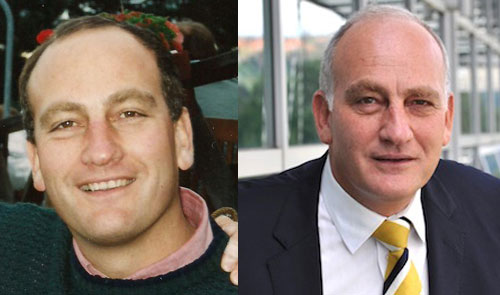
Tensions are rising between SA’s mobile operators over interconnection fees. MTN SA CEO Karel Pienaar has slammed a proposal by his counterpart at Cell C, Lars Reichelt, that Cell C should benefit through the introduction of an asymmetric tariff regime.
Reichelt wants interconnection fees to be skewed in Cell C’s favour so that it pays MTN and Vodacom less than the two bigger operators pay it. Cell C is SA’s smallest cellular network operator with about 7m customers.
Earlier this month, Cell C proposed to parliament’s portfolio committee on communications that interconnection rates — the fees the mobile operators charge each other and other operators to carry calls on their networks — be reduced to a uniform 75c/minute.
However, Reichelt told the committee that Cell C ought to pay only 65c/minute. That means a call from Cell C to Vodacom would attract a 65c/minute interconnect, whereas Vodacom and MTN would have to pay Cell C 75c/minute for a call in the opposite direction.
“It’s very sensible to promote asymmetry until companies reach 15-20% market share,” Reichelt told TechCentral at the time.
But Pienaar says Cell C’s proposal lacks fairness. He says Cell C has invested “a quarter or a third” of what MTN has in building its network in SA. It has invested billions of rand in 3G network infrastructure and back-haul fibre networks, Pienaar says. And it has sunk billions more into subsidising Sim cards to drive up penetration.
He says the Independent Communications Authority of SA (Icasa) has already declared all three mobile operators, including Cell C, to be dominant for the purposes of regulation. “That clearly takes asymmetry out of the equation.”
It has been difficult to negotiate with Cell C, Pienaar adds. “We have certainly tried [to engage] and will continue to try”.
Cell C has “put a position out there around asymmetry and it really isn’t interested in considering anything else”.
“Cell C’s proposal is nonsensical. We won’t accept it.”
Asked whether he expects retail rates — the prices consumers pay — to come down if interconnection fees are dropped, Pienaar says rates are falling anyway as a result of “fierce competition”.
“There hasn’t been a year where prices haven’t come down substantially,” he says.
“We should be lauded for what we’ve achieved in bringing prices down and for continuing to bring them down, and not chastised.” — Duncan McLeod, TechCentral
Subscribe to our free daily newsletter or follow us on Twitter

